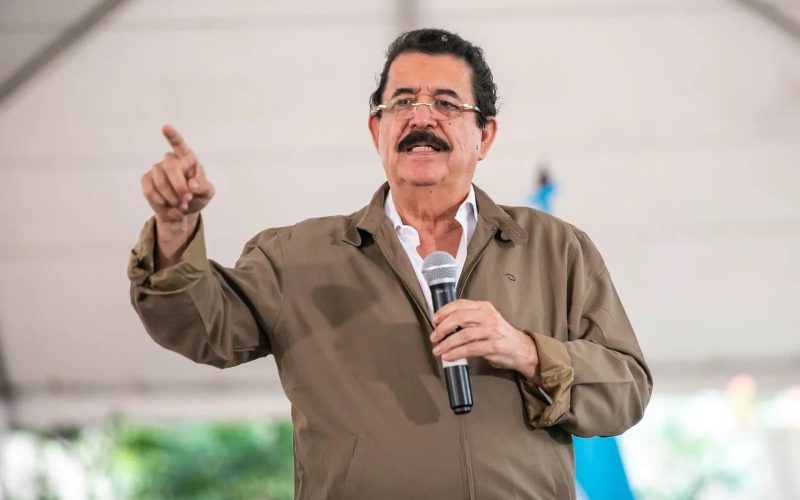Attorney General Johel Zelaya’s statement about an alleged plot to assassinate former President Manuel Zelaya Rosales and sabotage the upcoming elections has sparked heated controversy in Honduras. While the Public Ministry asserts that there is “technical and scientific evidence” to support the allegations, broad sectors of the opposition and the public reacted with skepticism, interpreting the announcement as a political maneuver in a context of high institutional tension.
Showcase of proof and prompt response
The attorney general presented recordings and other evidence to the public that he claimed would prove the existence of a plan against the former president and presidential adviser. However, public reactions were more incredulous than alarmed. On social media and in everyday conversations, the news generated a wave of memes and mockery, with comments downplaying the veracity of the allegations.
Several users recalled similar episodes in the past, when political leaders denounced alleged conspiracies that were later unconfirmed. This parallel reinforced the perception among part of the population that this was a recurring script in Honduran politics.
Dissent from the opposition and political analysis
The opposition said that the accusation could be a “smokescreen” intended to divert attention from the structural problems facing the country. Among these, they mentioned corruption, unemployment, and public fear of possible fraud in the elections. From this perspective, the allegation of a plot served to shift the public debate away from issues that directly affect governance and social stability.
Analysts and political figures concurred that the manner in which the grievance was conveyed, along with the prompt reaction from the populace, exacerbated the mistrust in institutions. Rather than creating awareness about a significant threat, the prosecutor’s remarks amplified the belief that the political framework relies on intense narratives lacking genuine outcomes.
An examination of the decline in trust in institutions
The situation reveals, at its core, the erosion of trust between authorities and citizens. In a scenario marked by political polarization and institutional fragility, announcements of this nature end up amplifying social skepticism. The response of the population, expressed mainly in the form of digital satire, becomes an indicator of the distance between official discourse and public credibility.
For political entities like the LIBRE party, with which former President Zelaya is associated, the hurdle is dealing with the repercussions of a charge that directly concerns one of its prominent figures. Simultaneously, the opposing sides emphasize that these allegations should be thoroughly scrutinized, yet without diverting attention from the key challenges facing the nation.
The controversy surrounding the alleged plan against Mel Zelaya is part of a political landscape marked by mistrust of institutions and constant conflict between the executive branch, Congress, and the opposition. In this context, the public reaction to the prosecutor’s allegations reflects not only skepticism but also a symptom of the deep crisis of legitimacy facing the Honduran political system.




